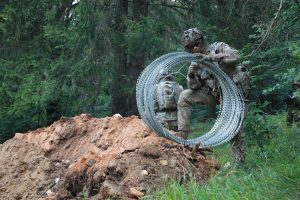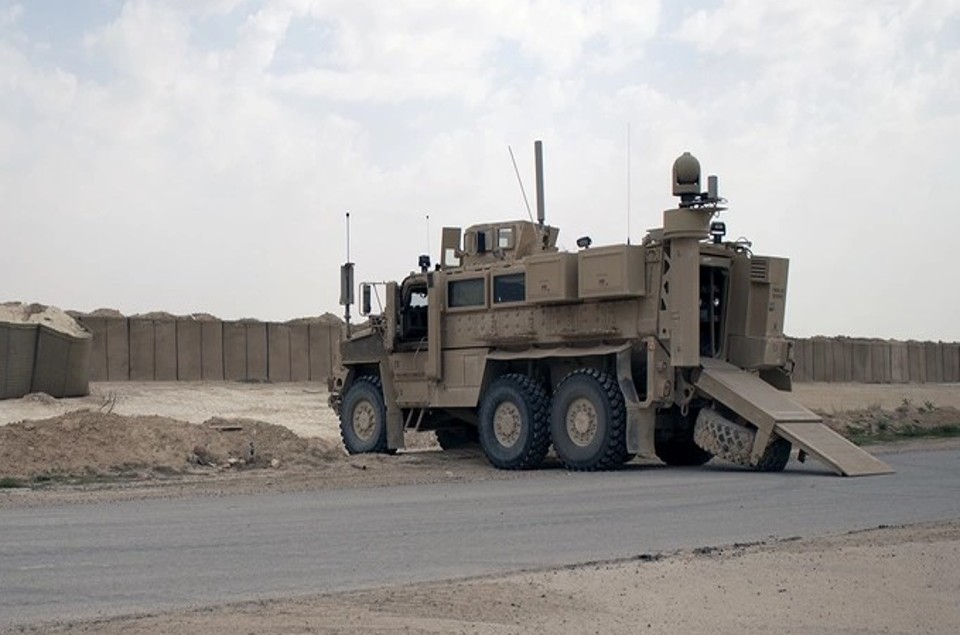Student to Lieutenant Series – Part 6: Graduating BOLC & Follow-on Schools
Warriors,
Whoa! Whoa! Whoa! Where’s the phase for BOLC itself? The series is jumping from arriving at the BOLC installation to after graduation? That’s a valid question with a simple answer: I can’t write that piece. I graduated from one of the many BOLCs more than a year ago. My intel is limited and dated. But, please, please, please, share YOUR experiences through JOF. The next generation will thank you. Your post should start something like this: “I Started xBOLC at Ft. Awesome last month, here are some tips if you’re headed this way…” (And don’t forget the “BOLC” tag)
Congratulations! You graduated BOLC, you are “branch qualified” to perform duties within your zone of expertise and level of responsibility. Your next and primary priority is the completion of

MANDATORY follow-on schools and immediately reporting to your first unit. Your secondary priority is taking advantage of any opportunities for extra follow-on schools. Let’s break this down, and I’ll tell you a story.
If you’re going to an Airborne unit (this is probably the easiest example), you probably need to complete Airborne School prior to reporting to your first duty assignment. That is a “mandatory” school. If you are already in contact with your gaining unit, and you know you will assume responsibilities as a Postal Operations Officer, you can classify the Postal Operations Course as “mandatory.” If you are headed to an Armor Brigade or Stryker Brigade, you may be directed to attend Stryker or Bradley Leader Course, again, “mandatory.”
Non-mandatory schools: If you want to attend a course because “this course is available, I know there are slots open because my buddy’s brother is the Commander of the school, and my gaining unit isn’t expecting me for another 90-days…” That course is “non-mandatory,” and don’t get it twisted, if you can get yourself enrolled, #GetItGetIt. Just don’t let this detour turn into a major emotional event. For reasons too long and boring to explain through typing, these add-on schools can be administratively taxing for your training units and have second- order effects on timelines for gaining units and installation support activities. It’s NEVER impossible, but just for the sake of staying positive, recognize that if you encounter an obstacle or a hard “no” with a follow-on school, do NOT assume it’s personal or bureaucracy. That “yes” is probably just complicated beyond your purview. If it turns out, your unit needs you to have that qualification, they’ll send you back. If it turns out, it’s just a qualification you wanted because why not, you’re not wrong to want it (professional self-development is good), but it’s okay to let it go, even if you may never have the opportunity to get it ever again.

Mandatory schools! Mandatory schools, complete! Now, hustle to your first unit! Your BOLC taught you a lot, everything it didn’t teach you is waiting at your new unit. For Junior Officers (JO), schools are great, but experience is the greatest educator. That’s why a well-managed JO career timeline includes (in any order) time in a leadership position, time in an XO position (shadowing for the next leadership position), and time in a staff position (experience in the positions where most officers spend 80% of their careers). At this stage in your professional development, you will benefit most from a breadth of experience, and until there are more hours in the day or days in the year, time is the limiting factor. So, get to your first unit and start some of that “OJT” everyone keeps talking about…
If that wasn’t compelling enough there are also less selfless, but very practical reasons to arrive sooner rather than later to your first duty assignment. Almost everyone PCSs in the Army in similar seasonal windows. Being at the front edge of one of those windows makes PCSing easier (housing market, moving company availability…). Positions inside of the unit can often be first-come-first-serve. The battalion has three branch-qualified lieutenants arriving in the next 90-days. On paper, they all look very similar. Who gets which assignment or the possibility that you could influence that decision all depends on your ability to interact with the decision makers, face-to-face.
So, what about that story? No sh*t there I was… IBOLC almost complete and I receive my follow-on orders. I’m going to a Military Intelligence Brigade? I call my “branch representative” to discuss what I assumed was a clerical error. Turns out, there is (at this time) an Infantry Company in the MI Brigade, LRS — Long Range Surveillance. Awesomesauce. Finish Ranger School and I call the unit. “Hey unit, I finished Ranger School, should I go to Reconnaissance and Surveillance Leaders’ Course (RSLC)?” Response from the unit (true story), “no, you get down here ricky-tick LT, your platoon’s waiting for you in Iraq…” [fast-forward] “Hey, Sir, nice to finally meet you, I’m here to serve…” (again, true story) First words from the Commander, “Why didn’t you go to RSLC after Ranger School?” HERE’S THE LESSON though: Looking back on it, the rear detachment made the right decision! RSLC would have been great TRAINING, but it would not have been more valuable than the EXPERIENCE of a deployment with a real LRS Company.
So, BLOB (Bottom Line on the Bottom): Once you graduate from BOLC, get to your unit and start getting some of that invaluable experience.
Next post: Phase 4 — Reporting to your first Unit
Don’t forget to comment, if you like this post.
Check “notify me,” if you want to continue to follow this thread. Favorite, Subscribe, or Friend — all at the top dashboard.
~Jeff
The Student-to-Lieutenant Series
Part 1 – Phase 1: Receiving your Branch
Part 2 – Phase 2: Commissioning and Reporting to BOLC (Snowbird Status)
Part 3 – BOLC and Follow-on Schools
Part 4 – Operating Expenses and Where to Live
Part 5 – Operating Expenses and Where to Live (part 2)
Part 6 – Phase 3: Graduating BOLC & Follow-on Schools
Part 7 – Phase 4: Reporting to your First Unit
Related Posts

Fighting as an Enabler Leader
(U.S. Army Photo by Cpl. Tomarius Roberts, courtesy of DVIDS)Enablers provide capabilities to commanders that they either do not have on their own or do not have in sufficient quantity …

Defeating the Drone – From JMRC’s “Skynet Platoon”
If you can be seen, you can be killed—and a $7 drone might be all it takes. JMRC’s Skynet Platoon discuss their TTPs to defeat the drone.

3 Deployments Before Captain: Reflections From Down Range
Deployments challenge junior officers beyond their primary duties, often demanding adaptability, wellness management, proactive leadership, and moral integrity maintenance.
